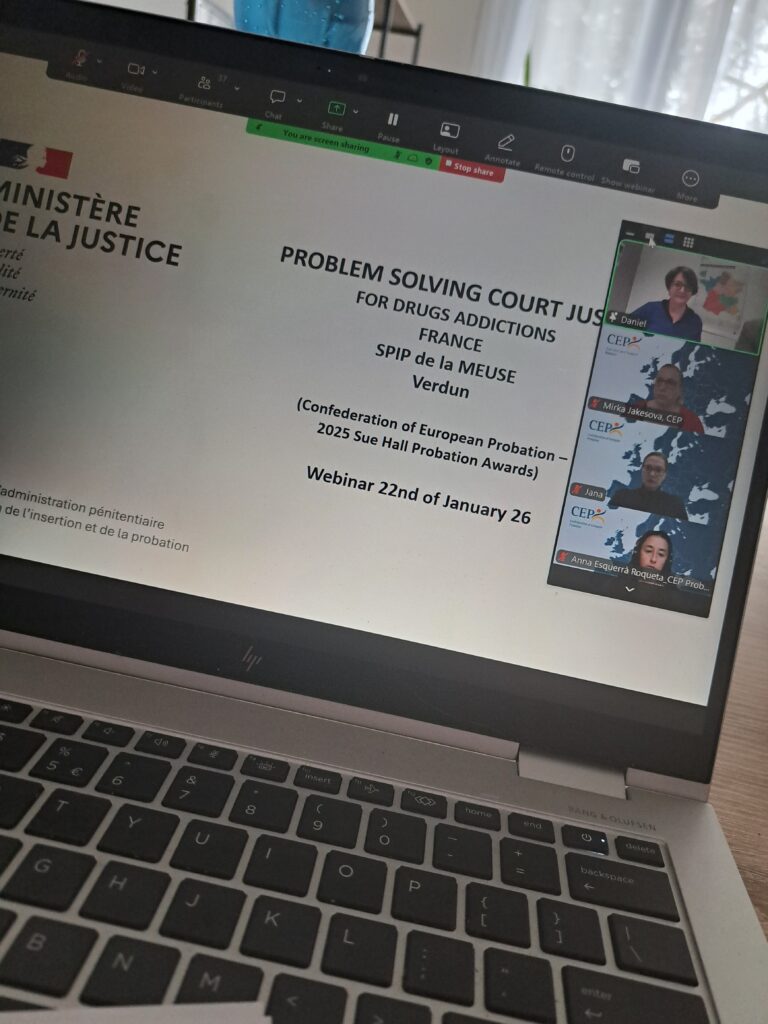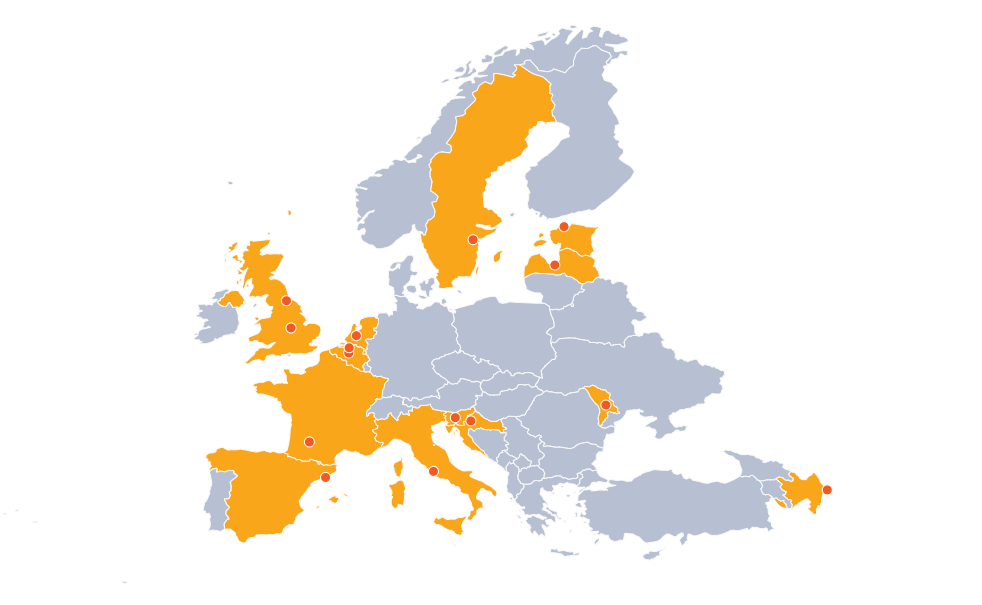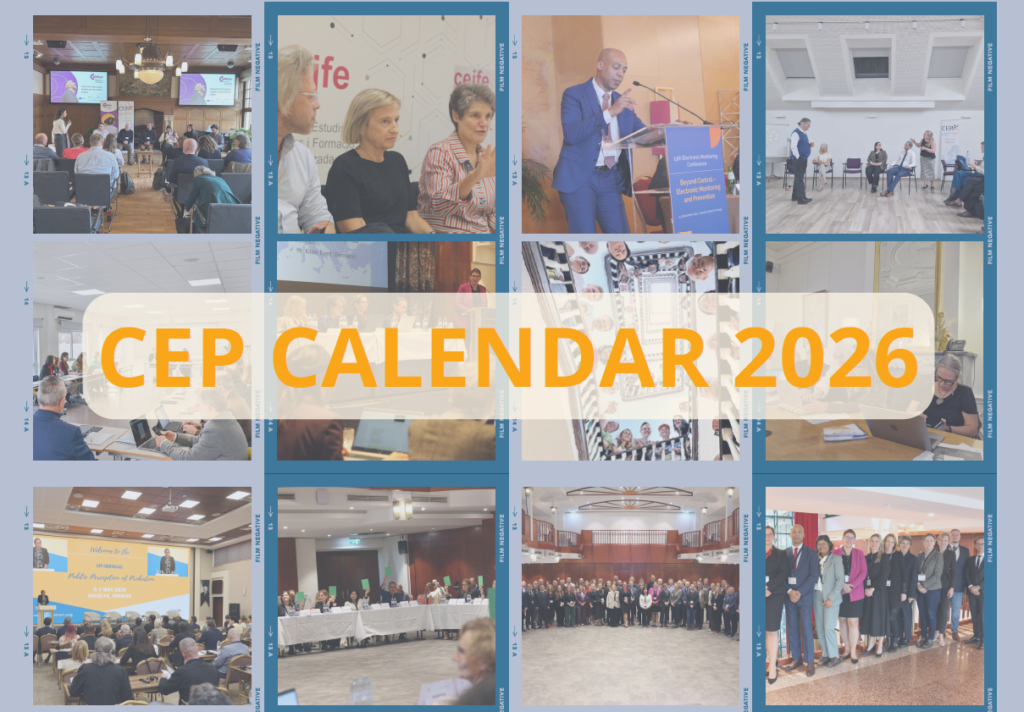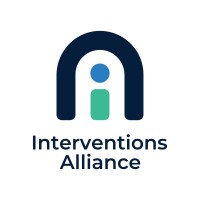Previous Article
News
Beyond Surrender: Fair Trials puts human rights on the agenda of the European Arrest Warrant
In June 2018, Fair Trials released it’s latest report into the operation of the European Arrest Warrant (EAW), Beyond Surrender: Putting Human Rights at the Heart of the European Arrest Warrant. This report presented the findings of a two-year research project conducted by Fair Trials and partners in Spain, Poland, Lithuania and Romania that sought to place the operation of the EAW in the context of the people against whom it has been used. A short documentary film was released accompanying the report.
This article is written by Ralph Bunch, Regional Director Europe of Fair Trials. Fair Trials highlights the urgent need for pre-trial detention reform in order to address human rights concerns in the operation of the European Arrest Warrant (EAW) and ensure implementation of the European Supervision Order (ESO).
The purpose of the project was not to conduct a detailed assessment of the legal complexities of the EAW system examining its operation from academic or legal practitioner perspectives, work that has been carried out by a variety of different actors. Rather, the project sought to understand to what extent the concerns identified with the operation of the EAW system can be seen to have real impact on people. Understanding how people are treated after surrender helps us to understand where reforms are needed. Human stories place those needs in a real and relatable context.
Our research found that the EAW continues to be overused, for example as a means to investigate a suspect, rather than to bring a person to trial or to catch a fugitive, the purposes for which it is meant to be used. And, too often, people are being surrendered into situations where their human rights are at risk. Recent decisions by the Court of Justice of the EU have started to tackle some of these problems, for example prohibiting the surrender of people where they might be placed in detention conditions that would amount to a violation of the right to be free from ill-treatment, or where their right to a fair trial is threatened by attacks on judicial independence in the requesting country. But more needs to be done to protect against the most harmful impacts of the EAW.
Among the measures that we are recommending is EU-level legislation on pre-trial detention, that will encourage greater use of alternatives to detention as well as the better implementation of the European Supervision Order. Research continues to show that the ESO is not being used and that a primary driver of this is a lack of willingness of judicial actors across the EU to use alternatives and to treat pre-trial detention as the measure of last resort that it is required to be. Yet the cases uncovered in our research show how important such measures are.
Cases
For example, in our research we uncovered the case of Pedro Godinho, a Portuguese national, who was a suspect and wanted for questioning in a money laundering and fraud case in Spain. He was sought and surrendered pursuant to an EAW solely for the purpose of questioning him in relation to the case. After the questioning he was placed in pre-trial detention, where he has stayed for more than one year without formal charges being brought against him. This situation has been extremely difficult for Pedro and his family, especially for his wife Patrícia Jales, who takes the bus from Lisbon to visit him in Spain almost every weekend, travelling over-night, both ways, for just 40 minutes with her husband.
Similarly, we uncovered the case of Sara Medrano, who was living in Romania with the parents of her partner, together with her 4-year-old daughter and a newborn baby when she was arrested through EAW issued by Spain. Sara’s lawyer spent a considerable amount of time requesting the Spanish court to reconsider the possibility of withdrawing the EAW and authorizing Sara to voluntarily return to Spain by her own means for the trial, but the court ignored their requests. Instead, she was surrendered to Spain, placed in pre-trial detention with her newborn baby until the trial took place. Yet, despite the effort to relocate Sara to Spain for the trial, separating her from her four-year old daughter, the trial itself took place by videoconference with Sara participating from the Spanish prison where she was being held with her baby.
In another case we documented, Paulina Heinrich-Singh was surrendered from the Netherlands, where she lived, to Poland to stand trial for a 10-year-old drug charge, despite being seven-months pregnant at the time. Forced to wait for trial in pre-trial detention in Poland, in a small cell that she shared with seven other pregnant women, Paulina gave birth while in detention. The baby spent its first months in detention with his mother, sharing a cell with four other women and their young babies, became sick and received less than ideal medical care.
In each of those cases, adequate alternatives to pre-trial detention were readily available that would have greatly ameliorated the damage to the people subject to the EAW and their families. Each of these people could have been released under an alternative to detention and a European Supervision Order could have been issued allowed them to return home under supervision. Sara’s case, for example, one can question why it was required to separate her from her four-year old daughter in Romania and detain her with her newborn baby in Spain, when she had expressed a willingness to return to Spain for the trial, and the trial itself was going to be held by videoconference. In Paulina’s case after trial and conviction she was almost immediately transferred back to the Netherlands to serve her sentence, at which point she was released, indicating the absurdity of holding her pre-trial and forcing her to give birth in a Polish prison.
These cases highlight how urgently pre-trial detention legislation is needed at the EU level. Without it, judicial authorities will continue to overuse pre-trial detention and underuse the European Supervision Order, resulting in continued violations of human rights in the operation of the EAW system. In April of this year Fair Trials convened a meeting at the European Parliament of the leading European criminal justice actors, including CEP, to discuss the need for pre-trial detention reform at the EU-level. Participants at the meeting agreed that there was a need for a concerted encourage to push the EU and its Member States towards the adoption of the EU-level legislation that was foreseen in the Stockholm Programme. We are working on a joint position statement to that effect aimed at influencing the programme of the EU after the parliamentary elections in 2019. We have also translated our Beyond Surrender report and film into various European languages with the view to holding roadshows of this work in EU Member States. If any CEP Member is interested in holding such an event in their country we strongly encourage you to get in touch.

Related News
Keep up to date with the latest developments, stories, and updates on probation from across Europe and beyond. Find relevant news and insights shaping the field today.
New

Alternatives to pre-trial detention, Community Sanctions and Measures, Framework Decisions, Technology
Future of Criminal Justice: CEP’s Contribution to Key 2025 Dialogues
27/01/2026
Throughout 2025, CEP and its representatives actively participated in the online Technical meetings ahead of the HLF as well as the High Level Forum on Future of Criminal Justice taking place on 4-5 March 2025, 20-21 May 2025 and 1-2 October 2025 in Brussels, Belgium.
Recap

Alternatives to pre-trial detention
Recap: Webinar on Alternatives to Detention 2026
26/01/2026
On Thursday 22 January, CEP hosted the first webinar of 2025 on the topic of Alternatives to Detention. The session led by Ms. Marina Pajoni from the French Prison and Probation Service titled „Problem Solving Justice in Pracitce: The Meuse Probation Service´s Approach to Drug Addiction“ introduced an innovative programme developed by the Meuse Probation Service in close cooperation with the French Ministry of Justice.
New

Education and Training
CEP launches an interactive European map of probation education and training institution contacts
22/01/2026
The CEP is pleased to inform its members that a new dedicated section has been developed on the CEP website featuring an interactive map of Europe.
New

CEP Events
CEP activity calendar 2026
20/01/2026
As we begin the new year, we would like to thank all CEP members, partners, and participants for your continued engagement and valuable contributions. Your involvement plays an essential role in shaping CEP’s work and activities.
We are pleased to share the CEP calendar for 2026, which provides an overview of the events planned for the year ahead. We look forward to continuing our collaboration and welcoming you to upcoming CEP activities throughout the year.
Thank you for being part of the CEP community.
New

CEP members, Gender-based violence
Interventions Alliance’s Eden House Recognized as Outstanding
15/01/2026
CEP is delighted to share that Eden House, an Interventions Alliance residential service for women with high-risk or complex needs on probation, has been rated “Outstanding” overall by HM Inspectorate of Probation. In 2022, Eden House was honored with the CEP Public Protection Award. Our sincere congratulations to the team for this remarkable achievement.
New

Education and Training
The Judicial Training Dashboard
14/01/2026
The European Training Platform (ETP) is a search tool for justice professionals. You can find self-learning materials on a great variety of EU law practice areas and related topics, as well as links to training providers’ homepages and course catalogues.
Subscribe to our bi-monthly email newsletter!
"*" indicates required fields
- Keep up to date with important probation developments and insights.

